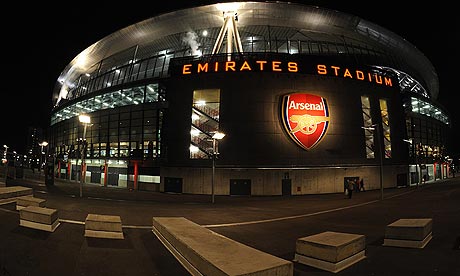
Stan Kroenke, the secretive American billionaire, announced yesterday he had spent £42.5m to increase his holding in Arsenal to 20.5%.
The transaction, which took place last Friday, involved Danny Fiszman's sale of 5,000 shares for more than 12.5% above the market price. Fiszman, who until recently was the biggest single shareholder in the club, has now taken out significantly more than he has invested in his equity but retains a 16.1% stake.
"I would like to stress that I will remain a long-term major shareholder in the club and I am retaining the majority of my investment," Fiszman said. "[Kroenke] has already brought considerable knowledge and experience to the board and I have no doubt that he will continue to be an asset to the club."
The development sends a loud message that the Fiszman-Kroenke axis is strong and that the American has the cash to expand his interest in the club. But it will not reassure Arsenal fans about the club's long-term stability.
Lady Nina Bracewell-Smith was ousted from the Emirates Stadium board last December but retains more than 15% of the club's equity. That effectively accords her the status of kingmaker in a power struggle involving the club's old guard – now including Kroenke – and the Russian oligarch Alisher Usmanov.
When asked yesterday if any attempt had been made to purchase the Bracewell-Smith shares, the chief executive, Ivan Gazidis, said: "We don't know what Lady Nina's intentions are with her shares but certainly, if she were to say she was a seller of those shares, I'm sure there would be interest from among the current board."
Fans will assume that Kroenke would have bought Bracewell-Smith's stake if she had been willing to sell it to him, suggesting that her dismissal as a director in December has damaged their relationship. Like David Dein before her that could yet push Bracewell-Smith into the arms of Usmanov, a man whom influential Arsenal supporters have been campaigning against.
Like many Russian oligarchs Usmanov is believed to have suffered a cash-flow crisis during the recession and is not in a position to buy more shares right now. But he continues to refer to himself as a "long-term investor" and may yet return with a hostile bid when his financial fortunes improve.

